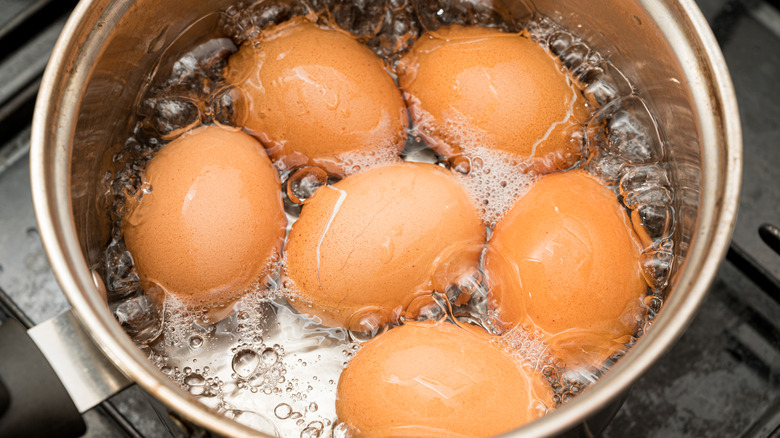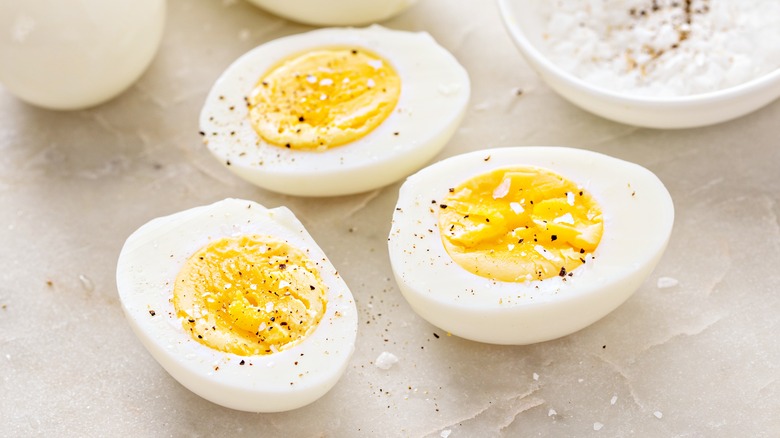Does Boiling Eggs Actually Remove All Risk Of Food Poisoning?
Boiling eggs is a highly effective method used to reduce the risk of food poisoning, but it isn't flawless. When eggs are boiled, the heat kills most bacteria, including salmonella, an infamous culprit for illness. To put things in perspective, the temperature required to kill salmonella is around 160 degrees Fahrenheit. When eggs are boiled, the water reaches 212 degrees Fahrenheit.
However, the risk of salmonella contamination is not entirely eliminated if eggs aren't cooked long enough for the yolk to solidify. Along with other false facts about hard boiled eggs you thought were true — such as how you can only make them in a saucepan or how you shouldn't freeze them — it's simply incorrect to state that simmering water is an infallible destroyer of dangerous microorganisms. Although our perfect hard-boiled eggs recipe takes just 12 minutes to achieve a tender, fluffy yolk, soft-boiled, sunny-side up, and poached eggs, which generally require less time, still have partially liquid yolks that might not reach the necessary temperature to eradicate all germs.
Boiling eggs doesn't destroy 100% of bacteria
Before eggs hit market shelves in many countries, they undergo pasteurization, a process that removes harmful bacteria via a rapid heating treatment to ensure safer consumption. For instance, the United States Department of Agriculture Food Safety and Inspection Service requires eggs to be washed and refrigerated to help lower the risk of contamination.
The threat of food poisoning from eggs also depends on where they come from. Eggs from healthy, well-maintained flocks at trustworthy poultry farms are less likely to carry salmonella. Interestingly, a recent study conducted by researchers from North Carolina State University, published in Foodborne Pathogens and Disease, revealed that salmonella rates were significantly higher on commercial farms compared to small backyard farms — 53% vs 19%, respectively.
When prepping deviled eggs, Cobb salad, curry, or ramen, be sure to cook your eggs thoroughly until both the white and yolk are firm. The U.S. Food and Drug Administration warns those at higher risk for foodborne illness, including young children, pregnant people, the elderly, and immunocompromised individuals, should be especially cautious and avoid undercooked or raw eggs altogether. So, as it turns out, Rocky Balboa's egg diet is more dangerous than you think due to the slightly increased likelihood of becoming sick, and Marilyn Monroe's unusual breakfast of warm milk and raw eggs probably won't make you a glamorous star overnight.

